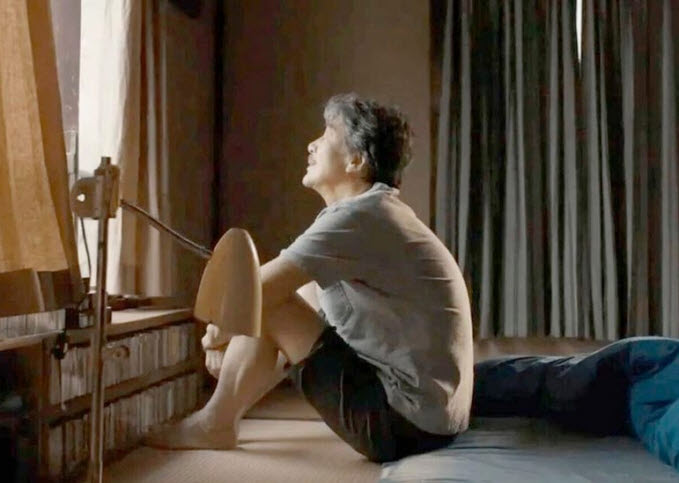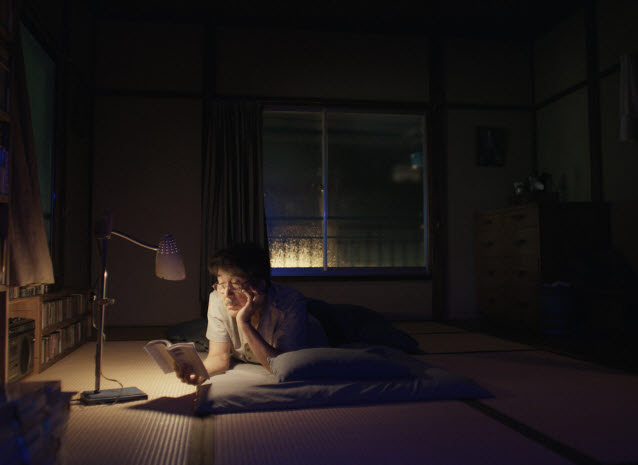Wim Wenders’ latest film “Perfect Days”, which was nominated for Best International Film Oscar in last month, is a sublime experience much richer than you might think at first. On the surface, it is just the plain observation on the daily life of one supposedly ordinary toilet cleaner working in Tokyo, but the result is somehow quite compelling and moving on the whole, and you will not easily forget those small but precious human moments in the film.
In the beginning, the movie slowly establishes the mostly consistent daily life pattern of its toilets cleaner hero played by Kōji Yakusho, who incidentally won the Best Actor award when the film was premiered at the Cannes Film Festival early in last year. We see how he starts his another day at his little cozy residence where he has lived alone by himself. We watch how he works in a number of different public toilets in the city. We observe how he spends the rest of the day once his worktime is over.
Now this sounds like your average artsy boredom, but you will admire how slowly and patiently the movie draws you more into the emerging rhythm of its hero’s daily life, which is sometimes interrupted in one unexpected way or another. His younger partner, who does not seem that reliable to say the least, is usually more occupied with how he can get closer to his girlfriend, and this lad certainly causes some annoyance for our toiler cleaner hero from time to time. In case of one certain old homeless guy, he seems to be leading his own lifestyle just like our toiler cleaner hero, and he surely brings some extra amusement for us whenever he appears on the screen.
Meanwhile, the screenplay by Wenders and his co-writer/co-producer Takuma Takasaki adds one small detail after another to its hero’s inner life. At one point, we see him collecting one tiny tree sprout, and then he brings this sprout to one certain room in his residence, where he has carefully grown other small tree sprouts. In addition, he loves spending time at a certain spot in one particular public park full of tall trees, and we see how he tries to photograph the leaves of those trees with a little old film camera of his. The movie does not explain these little hobbies of his at all, but they function as interesting details to observe and reflect on, and we become all the more curious about who its hero really is.
The most notable aspect of our toilet cleaner hero is how he often enjoys listening to old recognizable pop songs via cassette tapes while driving his little van here and there in the city. Besides Lou Leed’s classic pop song “Perfect Day”, the movie effectively utilizes several notable pop songs such as Otis Redding’s “(Sittin’ On) The Dock of the Bay” throughout the story, and I especially like the impromptu performance of the Japanese version of “The House of the Rising Sun” at one point in the middle of the film.
Meanwhile, small but interesting things continue to happen around our toilet cleaner hero, and one of these interesting happenings is the sudden visit of a niece of his. Due to some conflict with her mother, who has incidentally been estranged from him for years, she wants to stay at his residence at least for a while, and, though he does mind her staying at his residence at all, her presence causes some inconvenience for him to our little amusement.
At least, he gradually comes to open up himself a bit as spending some time with his niece, and the mood becomes a bit brighter as he gladly shows her how he works everyday. While he remains taciturn as before, it is apparent that he cares a lot about his niece, and she certainly appreciates his hospitality even though she does not know what she should do about her current problem. The movie wisely sidesteps explaining too much when her mother eventually appears later in the story, and we can only guess a bit on the past between our toilet cleaner hero and his family, who looks much affluent as far as I can see.
While quite enigmatic at times, Yakusho’s gently nuanced acting speaks volume with numerous subtle touches to observe and cherish. As he sensitively illustrates his unassuming character, we come to see more of a man who has been quite fine and happy with his lifestyle of choice, and Yakusho is simply fantastic as steadily maintaining the delicate tone of the film along with his director. Around the end of the movie, the camera simply looks at his face for a while, but that is more than enough for pulling out a powerful emotional moment on the screen, and Yakusho does not disappoint us at all.
Wenders also assembles a number of various performers around his leading actor, and they all have each own small moment to shine as ably functioning as the colorful counterpoints to Yakusho’s low-key performance. While Tokio Emoto, Arisa Nakano, and Aoi Yamada fill their younger characters with youthful spirit and personality, Yumi Asō, Sayuri Ishikawa, and Tomokazu Miura are also well-cast in their small supporting roles, and the special mention goes to Min Tanaka, who humorously steals the show during every second of his brief appearance in the film.
Overall, “Perfect Days” is a wonderful surprise from Wenders, who has been known more for his several acclaimed documentaries such as “Pina” (2011) and “The Salt of the Earth” (2014). While it is surely something quite different compared to his recent works, the movie shows us that Wenders is still a great filmmaker who gave us “Paris, Texas” (1984) and “Wings of Desire” (1987), and I really hope he will surprise us more during next several years at least.











Pingback: My Prediction on the 96th Academy Awards | Seongyong's Private Place